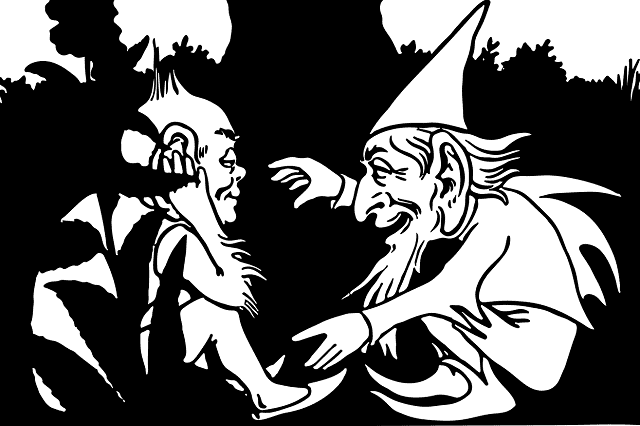
We all have a story: who we are, what we’ve done, what we dream. But often we let that story be told by others, instead of telling it ourselves.
When I was young, I was:
- Clumsy
- A brat
- Too small to do things
- Too young to understand
- Always in trouble
- Stupid
- Mean
These were all stories told about me and to me by my family and friends.
While I can’t really deny “Clumsy” — my body and brain aren’t always on the same page to this day — many of the other stories were told through the lenses of others with their own agenda. For example:
- My older sister didn’t want me tagging along.
- The neighbor kid didn’t like that I stood up to her.
- I was too independent for an adult’s taste. (Kids should do as they are told regardless of how arbitrary or unfair it might be — Not!)
When I started school, other stories began to be told by teachers and fellow students:
- A model student
- Smart
- Nice
- Attentive
I remember my mother telling my father about the parent-teacher conference she’d had, shaking her head and wondering if they’d been talking about the same child (me). Any clues as to why I really liked school?
Looking back, it’s clear to me that at school there was structure, clear rules, expectations and rewards for desired behavior. At home, it was often chaos, contradictory and arbitrary. Don’t get me wrong; my parents loved me and my sisters, but their parenting skills weren’t great, being the products of their own generation and parents.
The older I got, the more I began to break out of some of those old stories.
When I returned from 18 months travelling in Europe and Israel at the age of 20, I felt quite different. I had seen and experienced things that changed my worldview considerably. But my family and friends expected me to think and act just like I had before I left. It was disconcerting and frustrating. As were the continuous questions, “What are you going to be? You’re an adult now, you better finish school and settle on a career. When are you going to settle down and get married?”
I muddled through the next twenty years or so, trying to answer those questions with the stories I had learned about myself. Finally, everything came crashing down in a tsunami of cognitive dissonance, and I realized two things:
- I didn’t have a clue what I wanted to do.
- I didn’t even have an idea of who I was.
For most of my life I had let other people tell my story. My identity was tied up in what they wanted me to do and how they wanted me to be. Sure, sometimes they were right. Yes, I am half German, plus Norwegian, and a lot of other stuff. I grew up on sauerkraut, lefse, and other heritage foods — no lutefisk, thankfully! Those are certainly parts of me, but only in terms of family context.
My sisters and I were all expected to get scholarships and go to college. Working hard, getting married and having families were also expected parts of the package. Going to church (preferably Lutheran) and participating in church activities was also desired, but not as ironclad as my grandparents might have wished.
While these were bits and pieces of my identity, they didn’t really touch on who I, Marty, was.
And as for the doing? In my family, your job was the largest part of your identity. When my dad was diagnosed with Multiple Sclerosis and had to retire on disability, he dove into a deep depression. My mom was a bookkeeper who actually retired twice, because she couldn’t handle having that part of her identity cut off. But I didn’t know what I wanted to do.

The common questions of “What are you good at?” and “What do you like to do?” didn’t help at all. I was good at lots of stuff, especially in school. And I liked doing lots of stuff. I loved studying and learning. But when I was trying to figure things out, two of the promising areas were seemingly off-limits to my gender. Women were discouraged from going into Mechanical Engineering (I scored 99th percentile on Washington Pre-college Aptitude test). Nor were they particularly eager for women theologians in Seminaries at that time.
After much stalling and some diversions, I settled on being a missionary, specifically, a Bible translator. But that had its own pitfalls.
A panic attack over a key assignment in a Cultural Anthropology class soon had me questioning everything. That was the earthquake that led to the later tsunami.
Once that wave crashed and left me stranded high on the shore with all the detritus, it was time to start over.
The foundation cornerstone was: my being is as a child of God, a child of Grace.
The sister stone to that is: I am not what I do. My doing is not my being.
Please don’t think that I grasped all this and ran with it. It took hard work to get these stones identified and in place. I still find old mental and emotional habits that try to mess with them, downplay them, and otherwise discount them. But those are the foundation I live on now.
And in making that change, I discovered that I must tell my own story and not let others do it for me. Sure, I ask for and get feedback from my family and friends on things that seem unclear, but I do so with the knowledge that they are speaking from within their experience, through the glasses of their own stories, not as some arbiters of Truth.

Since this rebuilding began, I have done many things and gone many places. But mostly I have worked on discovering who I am and being genuine to myself as well as to those around me. It’s hard to do when others try to box me into a label according to what I do. But I believe it’s worth the effort.
So, I ask you, who is telling your story? Are you letting others dictate how you look, act, feel or think? Or do you tell your own story with integrity from the knowledge of who you are?
Remember, learning to tell your own story is a process, and you will change over time as you learn and grow. And that’s a good thing.
Grace, Peace and Hugs!